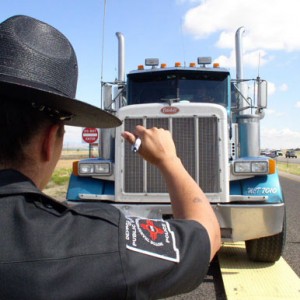Review: FMCSA DataQs system and challenges
When regular citizens receive traffic tickets incorrectly, they can contest their charges in court. While the court could still find them guilty, the prosecutor or judge may dismiss the case, reduce the charges and fines, or the case could go to trial and result in a not guilty verdict. In these cases, no points are…

When regular citizens receive traffic tickets incorrectly, they can contest their charges in court. While the court could still find them guilty, the prosecutor or judge may dismiss the case, reduce the charges and fines, or the case could go to trial and result in a not guilty verdict. In these cases, no points are charged to the citizen’s driver’s license.
Things are different for holders of a commercial drivers license (CDL), where points are placed on their license before a court hearing. Additionally, those points remain on the CDL unless the driver or motor carrier affirmatively submits evidence to the state in a separate proceeding proving the ticket was dismissed. Even then, the points may not be removed. That is the reality facing truckers under Compliance Safety Accountability (CSA). CSA analyzes safety-based violations and attaches a percentage score to the driver/carrier. A low score is supposed to correlate to the safety record of drivers or carriers. Therefore, it is important to strive to have the lowest possible CSA score.
The DataQs system is an electronic means for filing concerns about federal and state data released to the public by the Federal Motor Carrier Safety Administration (FMCSA). Any user, including motor carriers, drivers, and even the general public, can submit a request for data review using the DataQs system. Interested parties can register via the FMCSA portal or through the DataQs system directly.
DataQ requests require filling out simple forms with information from the relevant report, such as the report number, date and time of event, state, and an explanation for why the data should be changed. Filers may also submit documentation to support the request. All information is routed to the organization responsible for the data. Electronic correspondence is used to communicate with the requestor when additional information is needed. DataQs is open to the public and the website provides an online help function to walk users through the process.
If one believes that information on the FMCSA websites (SMS, FMCSA Portal, MCMIS, etc.) is incorrect, they should “DataQ” immediately and submit evidence supporting the contention that the data is flawed. Challenging violations found during a roadside inspection should be done only after careful documentation and review of the situation. Claimants should investigate, verify, and submit evidence supporting their position courteously and professionally. Clear photos and statements can help substantiate a challenge.
The DataQs system is an online method for drivers and carriers to appeal charges that will negatively affect their CSA scores. The information entered is known as a Request for Data Review (RDR). Data eligible for challenges include crash data, roadside inspections and specific tickets issued to drivers. These challenges can be filed by either a driver or a carrier.
A CSA score is comprised of data reported to the FMCSA through federal and state agencies. Typically, data regarding crash accidents and roadside inspections are reported by the states. As a result, the majority of DataQs challenges are reviewed by analysts from the state that issued the citation. Once the state makes a final determination, the FMCSA cannot overturn it without the state’s consent. This leaves open the possibility of discrepancies of challenges by states.
Consider the return polices of different retail stores. Some accept returns without much consideration while others are very strict. The same applies to states reviewing challenges. Some states are more liberal than others. There are no federal standards for states to follow.
Examples of things to submit to challenge DataQs (This list is neither comprehensive nor a guarantee that your submission will be approved.)
- Either the truck, driver or both are not related to the carrier
- Driver’s name, CDL, CDL state, DOB is incorrect
- A different violation is listed with the FMCSA than is listed on the roadside inspection
- An inspection or crash has been duplicated on the federal register.
- If a ticket has been thrown out of court, it may be possible to have the violation removed
- If a violation has been mis-coded (say the inspection lists “393.24(d) – Improper head/auxiliary/fog lamp aiming” a 6-point violation VS. “392.33 – Improper required lamps” a 2-point violation.)
- A tow-away in a crash for a vehicle that was drivable but the driver not available.
It is important to be selective about DataQs challenges. Throwing everything at the system and hoping something sticks is not likely to be a successful strategy. All DataQ challenges are reviewed by individuals and not computers. Petitioners should make their best case, submit substantiation for their position, be courteous, and accept the outcome resolutely. It’s a flawed system. There are often discrepancies in the process and the likelihood of success is not guaranteed. But, until the system can be improved, it is the system within which the commercial transportation industry must operate.
Members are advised to look for the MTAC training calendar for an upcoming training seminar regarding the process. This program will be presented by the appropriate personnel from the Connecticut DMV Commercial Motor Vehicle Division familiar with and responsible for the DataQs function in this state.
